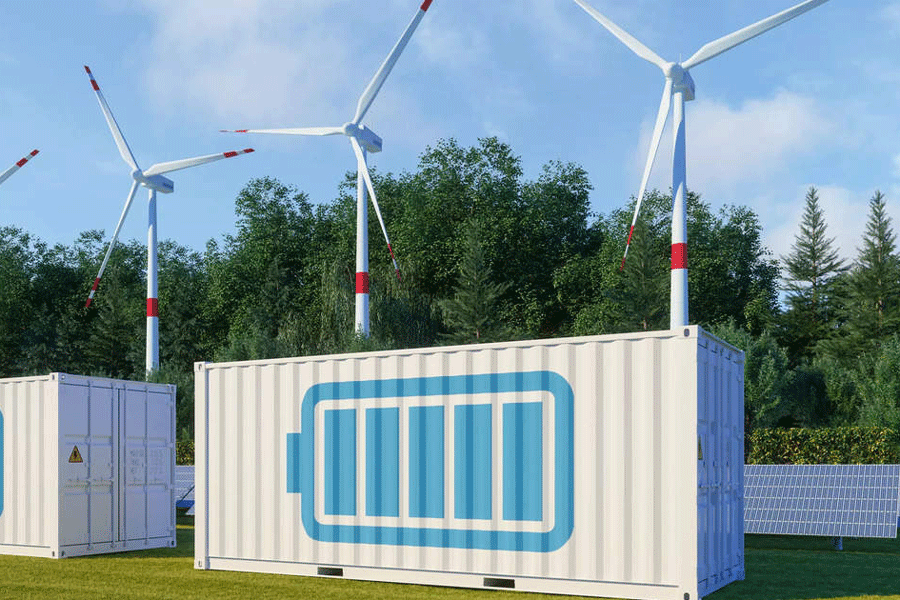The Cabinet on Wednesday approved a proposal to provide grants worth Rs 3,760 crore in the form of viability gap funding to companies setting up battery storages in the country.
The Centre will fund up to 40 per cent of a project cost.
The Modi government sees 4,000Mwh battery storage capacity by 2030-31. The funds will be released in five tranches till 2030-31.
Information and broadcasting minister Anurag Thakur said the viability gap funding will lead to an investment of Rs 9,500 crore.
Battery storage projects are critical to India’s ambitious plan to expand its renewable energy capacity to 500 gigawatts (GW) by 2030 from 178 GW at present. They enable storage of energy from solar, wind and other renewables, so it can be released when power is needed most.
The proposal for viability gap funding was announced by finance minister Nirmala Sitharaman in her budget speech on February 1. India currently has 37 MWh of battery storage capacity.
“The uptake in BESS (battery energy storage system) is largely dependent on the projected price reduction and establishment of a global supply chain,” Anish Mandal, partner, Deloitte India, said.
“Current costs have prohibited the Indian utilities and developers to scale up BESS deployment,” he said.
“The scheme for viability gap funding is a significant and much required intervention towards mobilising the first wave of BESS projects and enabling larger renewable installations for meeting the country’s growing energy need,” he said.
Kartik Ganapathy, founding partner, IndusLaw, pointed to some critical issues such as developing a spot energy market, carbon credits and the working of the electricity duty and cross-subsidy surcharge.
“The scheme could be made more lucrative by waiving stamp duty and registration fees on land acquisition designated for the installation of energy storage systems,” he said.
Pankaj Sharma, co-founder and director, Log9 Materials, said: “This will also come in handy for pre commercial battery projects to reach commercial stage.”
“Moreover, this funding from the government has the benefit of bringing non-dilutive capital to battery tech companies thus lowering the pressure of fund raise during the early technology development stage of various battery tech start-ups,” he said. Log9 Materials operates South Asia’s largest battery cell manufacturing plant.
With input from Reuters










